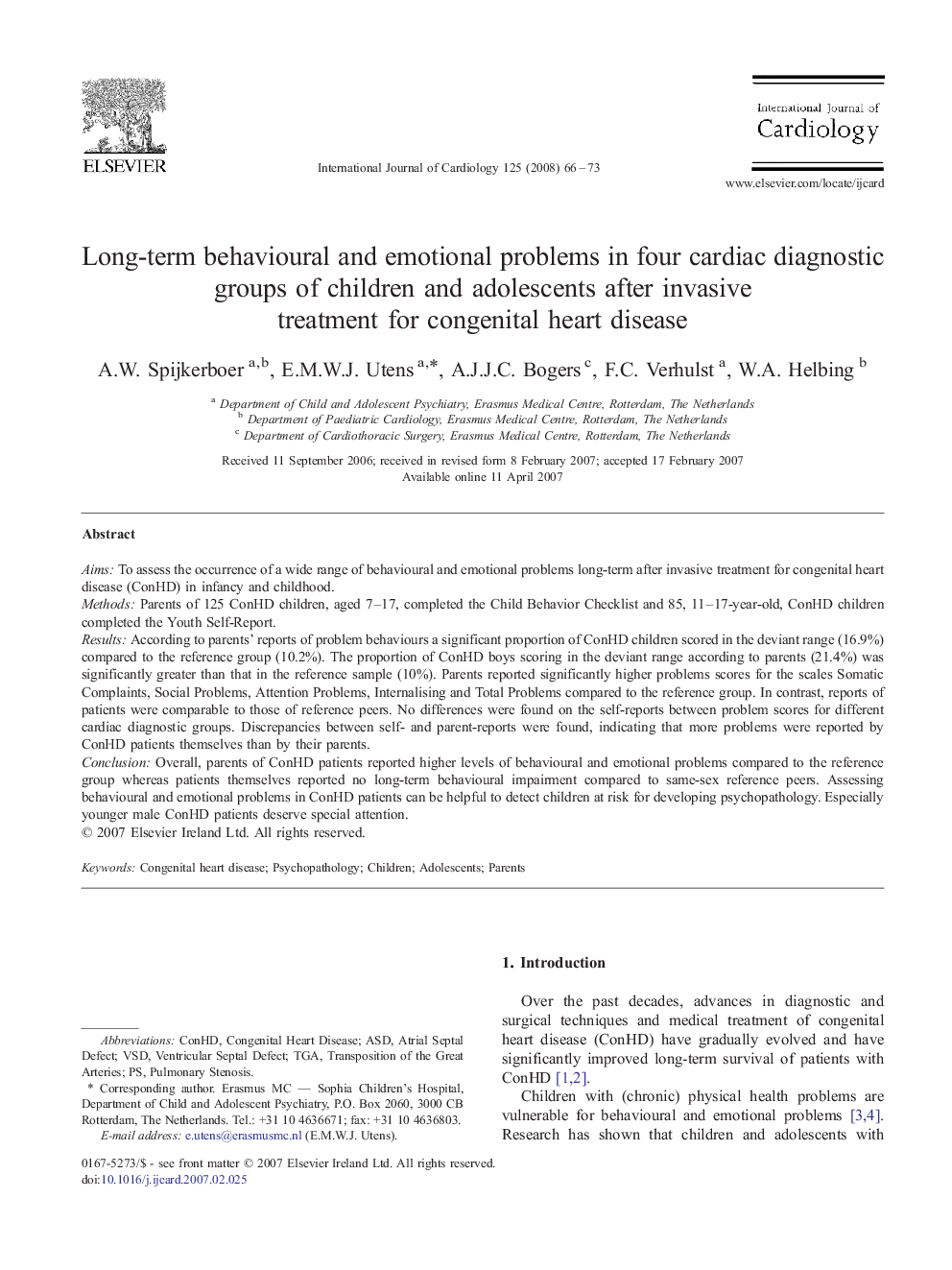| Article ID | Journal | Published Year | Pages | File Type |
|---|---|---|---|---|
| 2934687 | International Journal of Cardiology | 2008 | 8 Pages |
AimsTo assess the occurrence of a wide range of behavioural and emotional problems long-term after invasive treatment for congenital heart disease (ConHD) in infancy and childhood.MethodsParents of 125 ConHD children, aged 7–17, completed the Child Behavior Checklist and 85, 11–17-year-old, ConHD children completed the Youth Self-Report.ResultsAccording to parents' reports of problem behaviours a significant proportion of ConHD children scored in the deviant range (16.9%) compared to the reference group (10.2%). The proportion of ConHD boys scoring in the deviant range according to parents (21.4%) was significantly greater than that in the reference sample (10%). Parents reported significantly higher problems scores for the scales Somatic Complaints, Social Problems, Attention Problems, Internalising and Total Problems compared to the reference group. In contrast, reports of patients were comparable to those of reference peers. No differences were found on the self-reports between problem scores for different cardiac diagnostic groups. Discrepancies between self- and parent-reports were found, indicating that more problems were reported by ConHD patients themselves than by their parents.ConclusionOverall, parents of ConHD patients reported higher levels of behavioural and emotional problems compared to the reference group whereas patients themselves reported no long-term behavioural impairment compared to same-sex reference peers. Assessing behavioural and emotional problems in ConHD patients can be helpful to detect children at risk for developing psychopathology. Especially younger male ConHD patients deserve special attention.
